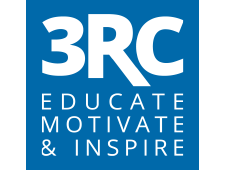SACAP: Innovative Education for a Better, Happier World
SACAP (The South African College of Applied Psychology) combines a peerless grounding in Applied Psychology with an innovative and transformative educational philosophy. At perhaps a time of greatest-ever need, SACAP is tapping the enormous potential in South African society to produce knowledgeable and transformational practitioners and effect positive change through robust academics, practical skills, and individual attention.
Since its establishment in 1997 in Cape Town, SACAP has enjoyed steady and consistent growth. A seminal moment in its history came with the advent of formalised bodies of recognition such as the National Qualifications Framework (NQF) which brought the institution college accreditation as a private higher education institution with the South African Qualifications Authority (SAQA) and the Council on Higher Education (CHE).
“This was a big turning point for SACAP,” comments Business Development Director, Debbie Hemp, “as it meant that we were then able to package our modules into various diploma qualifications.” This, coupled with its Executive Committee’s inspired vision of scope and scale, SACAP now stands proudly at the forefront of higher education in Applied Psychology, Management and Leadership, and Social Work and Community Development in South Africa.
Hemp continues: “Our grounding in Applied Psychology, together with our innovative and transformative educational philosophy, means that the graduates who leave SACAP blend skill, critical thinking and creativity to be responsive to the needs of society which leads to positive change.”
SEAMLESS TRANSITION
The college now has over 3000 students enrolled, and is growing all the time in both number and reach; custom-designed campuses in Cape Town, Durban, Johannesburg and Pretoria are bolstered by the ability to offer training across the world via SACAP’s Online campus. Hemp expands: “Our vast online presence is forming a big part of SACAP’s plans for further prominence.
“We have always had an Online campus facility, along with our original face-to-face delivery, but our digital offering is by far our biggest and fastest growing business vertical at present,” Hemp reveals, “and so much of our focus has been on developing the online space. Naturally, during Covid in particular, we saw this flourish massively but it seems to be continuing and accelerating, and is the source of much of our current success and progress.
“At the same time, we have nurtured our face-to-face campuses and, rather than show any signs of declining, they too are continuing to thrive and grow.”
SACAP’s visions are not limited to South Africa, Hemp continues. “We have also been exploring both regional and international expansions,” she says. “We currently offer micro-credentials in Malaysia, for instance, and are seeking to pursue more of the same.”
In response to the Covid pandemic, SACAP’s already robust and proven Online campus had to make a sudden, and vital, shift. Backed by SACAP’s trademark care and support, the Online campus seamlessly provided course delivery solely via the screen. Hemp explains: “While the move online was practically flawless, we also offered students tools to which they may not necessarily have had access, such as routers and data. This enabled them to obtain every benefit from the online arrangements.
“Not only on the data and learning side, support also extended to technical assistance and such facilities as counselling. We did our utmost to promote the primordial importance of, and central focus on, mental health throughout the pandemic.” As the need for mental healthcare to become a national priority grew in urgency, with the pandemic taking hold, SACAP’s webinar ‘A global crisis and the impact on South African communities’ was incredibly well-timed.
Participants were afforded the opportunity to join SACAP educators Dr Gordon Isaacs and Thelma Oppelt in their discussion of community mental health in the time of Covid-19. “It also underlined the positive role that SACAP’s Master of Social Science in Community Mental Health Promotion plays. The qualification focuses on building competencies as a strategic leader and social innovator in the various contexts of the South African mental health landscape.”
CRITICAL ROLE IN CHANGE
The widely-reported shortfalls in South African mental healthcare have long been noted, but if the global pandemic can be said to have had some semblance of positive impact, it is in the long-lasting changes which will be ushered in as a result in societies around the world. SACAP’s Master of Social Science in Community Mental Health Promotion is specifically geared toward pushing SA social innovators to address community mental health challenges in more effective ways, but as Hemp points out: “Rarely has there been a more welcome time for the skills and competences imparted through the full breadth of our courses.
“We don’t only produce psychologists,” she stresses. “We also graduate around 70 counselling students each year, registered with the Health Professions Council of South Africa (HPCSA), who have a central role to play alongside psychologists in progressing the mental health landscape in South Africa.
“Our students are empowered to enter a whole range of fields should they elect not to become psychologists. It is important to note that a Psychology qualification and the skills it teaches are applicable to myriad specialisms – learning about people, and understanding how to work and integrate with them and extract their very best, dealing with conflict and issues in teams, and refining research and analytical skills – all are deployed by our students in a vast array of disciplines.”
A primary challenge for SACAP now lies in consolidating its position at the very forefront of psychological education in South Africa. Academically, its educators are renowned for being leading professionals in their own domains, allowing students to benefit from their wealth of experience and skill, which enables SACAP to cement its standing as a centre of excellence for education, research, and personal and professional development in Applied Psychology.
“We are taking a holistic approach when it comes to our qualifications and the way that we deliver our learning,” Hemp details, “with a very strong emphasis on quality, we are constantly measuring every aspect of our provision to ensure quality and make improvements as and when required, which is a lot easier for us to do as a private entity compared to those operating in the public space; we can be much more adaptable and agile, and progress things much more quickly.
“We also constantly update and refine our curriculum, ensuring that it comprises only the most recent research, but this is still only as effective as the manner in which it is brought to life in our classrooms. Here, having educators who are practitioners bringing their real-life experiences to their teaching is a significant differentiator for us.
“Small class sizes of around 25, even with our online classes, allow us to constantly bring the theory to life in an applied manner,” Hemp expounds, “this is closely tied into the considerable Work Integrated Learning (WIL) component of all of our degrees, allowing students to actively go out into the field, engage and make a difference right from the off.”
In this way, SACAP is also able to form links with various psychosocial organisations in the counselling, community, health and welfare services, Hemp says. “The intention is that this collaborative work will promote excellence in the education and training of students within these industries.”
Prominent and renowned as it already is, Hemp still identifies many opportunities for SACAP to grow its market share and play an even more impactful role in responding to the enormous current need in South Africa. “With the online space growing as it has, even as a somewhat niche, private institution we are looking to attract a much larger proportion of our overall market,” she concludes.
“We have the opportunity to reach a much broader audience, possibly even with novel offerings, and really look to create more access for people to be able to study Psychology. These individuals can then effect social impact and change, and this is really what we are all about – fulfilling a critical and positive role within South African communities and our society at large in order to make a transformational impact on the lives of others.”


